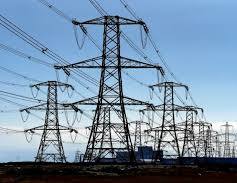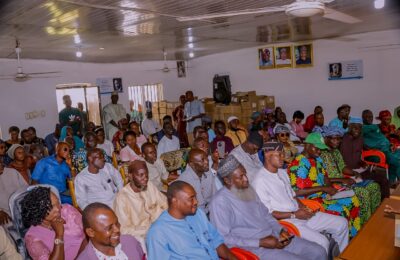LIGHT OR DARKNESS : THE CRITICAL CHOICE FACING NIGERIA.
By: Muhammed Abdullahi
Electricity is not merely a convenience; it is the foundation upon which modern civilization is built. Nations that aspire to industrialization, improved healthcare delivery, robust educational system, technological advancement, and global competitiveness must guarantee steady and affordable power supply. Without it, dreams of development are fragile illusions, crippled by darkness. For countries that continue to play politics, mismanagement, or neglect in the generation and distribution of their national power grid, the question is not whether development will slow down, but whether they will remain doomed to perpetual underdevelopment.
Electricity availability is not just about powering bulbs and fans. It is about fueling industries, creating jobs, attracting investments, and ensuring that economic growth is sustained. Countries that have achieved rapid transformation in Asia and parts of Europe did not do so by chance. They invested heavily in energy security, diversified their sources of power, strengthened their national grid, and established regulatory systems that encourage efficiency and accountability. By contrast, Nigeria and many African nations—remain trapped in a vicious cycle of unreliable supply, constant grid collapses, and over-dependence on diesel and petrol generators, which drain foreign exchange and worsen environmental degradation.
The National Grid as a Symbol of Development or Doom
The national power grid is often referred to as the “nervous system” of a country. Just as the nervous system connects and coordinates human activities, the power grid links homes, businesses, factories, hospitals, schools, and research centers. A weak, inconsistent, or collapsing grid signifies a paralyzed nation. When outages become the norm rather than the exception, the entire socio-economic fabric begins to unravel.
Imagine a student preparing for national examinations in a darkened room with no power supply. Consider a surgeon forced to delay or abandon a life-saving procedure because of power failure. Reflect on small and medium-scale enterprises, the supposed engine of national development, shutting down operations because they cannot cope with the rising cost of fueling generators. Such a country is already in doom’s waiting room.
The Cost of Playing with Power Generation and Distribution
Countries that treat electricity as a political trophy rather than a national necessity pay dearly. In Nigeria, for example, the national grid has collapsed multiple times in a single year, plunging millions into darkness. Power generation oscillates between 3,000–5,000 megawatts for a population of over 200 million people, while smaller nations with fewer resources generate far more. South Africa, despite its challenges, still produces multiple times more electricity than Nigeria. Egypt has not only stabilized its grid but also invested in solar, wind, and gas plants, making it a regional power hub.
Playing with power generation and distribution creates layers of consequences. Investors look elsewhere because they cannot trust the energy sector. Local industries operate below capacity, producing at higher costs that make their goods uncompetitive globally. Citizens lose faith in governance, resorting to self-help in the form of expensive solar systems and private generators. Environmental pollution worsens because fossil fuels dominate the alternative sources of power. Worst of all, economic growth becomes stunted, leaving poverty, unemployment, and social unrest in its wake.
Is Electricity Availability an Option or a Necessity?
For any serious nation, electricity availability is not optional—it is fundamental. Countries that play with their national grid are, in essence, toying with their survival. The 21st-century economy thrives on digital infrastructure, automated production, artificial intelligence, and high-tech medical facilities. All of these require reliable and stable electricity. Without it, a nation cannot even compete within its region, let alone on the global stage.
Some leaders argue that electricity generation and distribution are complex, requiring huge investments. That is true. But what is even more costly is the price of neglect. Every hour of blackout translates to lost productivity, lost revenue, and lost opportunities. Every collapsed grid sends a signal to investors that the country is not ready for serious business. Every unfulfilled electricity promise deepens the distrust between leaders and citizens.
The Way Forward: a Call to Action
The solutions are not beyond reach. First, countries must treat electricity as a matter of national security, not just economic policy. Power supply is directly tied to food security, health security, educational security, and industrial security. A nation without reliable power cannot defend itself against poverty or global irrelevance.
Second, diversification of sources is key. Relying on a single mode of generation—such as gas or hydro—is an invitation to disaster. Solar, wind, nuclear, and biomass must be integrated into the energy mix. The world is shifting towards renewable energy, not only because it is sustainable, but because it provides resilience against climate change and fluctuating fossil fuel markets.
Third, the national grid must be modernized. A grid that collapses repeatedly is an outdated relic unfit for modern demands. Smart grids, decentralized mini-grids, and improved transmission networks must be embraced. Countries that have successfully transformed their power sectors invested in grid reliability and expanded distribution channels that reach even rural communities.
Fourth, there must be transparency and accountability. Corruption in the energy sector is as destructive as sabotage. Contracts inflated, funds mismanaged, and policies abandoned halfway all contribute to national failure. Leadership must be bold enough to overhaul regulatory frameworks, attract credible investors, and ensure that energy reforms are not just on paper.
Finally, citizens must also embrace responsible consumption. Wastage, illegal connections, and refusal to pay electricity bills weaken the sector. A culture of accountability and civic responsibility must accompany infrastructural reform.
Conclusion
Electricity availability is not a luxury; it is the bloodstream of national development. Any country that chooses to play with the generation and distribution of its national grid is deliberately writing its own obituary of progress. Nations that fail to secure reliable power supply condemn themselves to darkness—not just physical, but economic and intellectual darkness.
The question before us is simple: will we rise to the challenge of building a resilient, efficient, and inclusive power sector, or will we continue to toy with destiny, leaving ourselves as a doomed nation in the committee of nations? History will judge leaders by their courage to light up their countries—or by their complacency that left millions in the dark.
LIGHT OR DARKNESS : THE CRITICAL CHOICE FACING NIGERIA.
By: Muhammed Abdullahi
Electricity is not merely a convenience; it is the foundation upon which modern civilization is built. Nations that aspire to industrialization, improved healthcare delivery, robust educational system, technological advancement, and global competitiveness must guarantee steady and affordable power supply. Without it, dreams of development are fragile illusions, crippled by darkness. For countries that continue to play politics, mismanagement, or neglect in the generation and distribution of their national power grid, the question is not whether development will slow down, but whether they will remain doomed to perpetual underdevelopment.
Electricity availability is not just about powering bulbs and fans. It is about fueling industries, creating jobs, attracting investments, and ensuring that economic growth is sustained. Countries that have achieved rapid transformation in Asia and parts of Europe did not do so by chance. They invested heavily in energy security, diversified their sources of power, strengthened their national grid, and established regulatory systems that encourage efficiency and accountability. By contrast, Nigeria and many African nations—remain trapped in a vicious cycle of unreliable supply, constant grid collapses, and over-dependence on diesel and petrol generators, which drain foreign exchange and worsen environmental degradation.
The National Grid as a Symbol of Development or Doom
The national power grid is often referred to as the “nervous system” of a country. Just as the nervous system connects and coordinates human activities, the power grid links homes, businesses, factories, hospitals, schools, and research centers. A weak, inconsistent, or collapsing grid signifies a paralyzed nation. When outages become the norm rather than the exception, the entire socio-economic fabric begins to unravel.
Imagine a student preparing for national examinations in a darkened room with no power supply. Consider a surgeon forced to delay or abandon a life-saving procedure because of power failure. Reflect on small and medium-scale enterprises, the supposed engine of national development, shutting down operations because they cannot cope with the rising cost of fueling generators. Such a country is already in doom’s waiting room.
The Cost of Playing with Power Generation and Distribution
Countries that treat electricity as a political trophy rather than a national necessity pay dearly. In Nigeria, for example, the national grid has collapsed multiple times in a single year, plunging millions into darkness. Power generation oscillates between 3,000–5,000 megawatts for a population of over 200 million people, while smaller nations with fewer resources generate far more. South Africa, despite its challenges, still produces multiple times more electricity than Nigeria. Egypt has not only stabilized its grid but also invested in solar, wind, and gas plants, making it a regional power hub.
Playing with power generation and distribution creates layers of consequences. Investors look elsewhere because they cannot trust the energy sector. Local industries operate below capacity, producing at higher costs that make their goods uncompetitive globally. Citizens lose faith in governance, resorting to self-help in the form of expensive solar systems and private generators. Environmental pollution worsens because fossil fuels dominate the alternative sources of power. Worst of all, economic growth becomes stunted, leaving poverty, unemployment, and social unrest in its wake.
Is Electricity Availability an Option or a Necessity?
For any serious nation, electricity availability is not optional—it is fundamental. Countries that play with their national grid are, in essence, toying with their survival. The 21st-century economy thrives on digital infrastructure, automated production, artificial intelligence, and high-tech medical facilities. All of these require reliable and stable electricity. Without it, a nation cannot even compete within its region, let alone on the global stage.
Some leaders argue that electricity generation and distribution are complex, requiring huge investments. That is true. But what is even more costly is the price of neglect. Every hour of blackout translates to lost productivity, lost revenue, and lost opportunities. Every collapsed grid sends a signal to investors that the country is not ready for serious business. Every unfulfilled electricity promise deepens the distrust between leaders and citizens.
The Way Forward: a Call to Action
The solutions are not beyond reach. First, countries must treat electricity as a matter of national security, not just economic policy. Power supply is directly tied to food security, health security, educational security, and industrial security. A nation without reliable power cannot defend itself against poverty or global irrelevance.
Second, diversification of sources is key. Relying on a single mode of generation—such as gas or hydro—is an invitation to disaster. Solar, wind, nuclear, and biomass must be integrated into the energy mix. The world is shifting towards renewable energy, not only because it is sustainable, but because it provides resilience against climate change and fluctuating fossil fuel markets.
Third, the national grid must be modernized. A grid that collapses repeatedly is an outdated relic unfit for modern demands. Smart grids, decentralized mini-grids, and improved transmission networks must be embraced. Countries that have successfully transformed their power sectors invested in grid reliability and expanded distribution channels that reach even rural communities.
Fourth, there must be transparency and accountability. Corruption in the energy sector is as destructive as sabotage. Contracts inflated, funds mismanaged, and policies abandoned halfway all contribute to national failure. Leadership must be bold enough to overhaul regulatory frameworks, attract credible investors, and ensure that energy reforms are not just on paper.
Finally, citizens must also embrace responsible consumption. Wastage, illegal connections, and refusal to pay electricity bills weaken the sector. A culture of accountability and civic responsibility must accompany infrastructural reform.
Conclusion
Electricity availability is not a luxury; it is the bloodstream of national development. Any country that chooses to play with the generation and distribution of its national grid is deliberately writing its own obituary of progress. Nations that fail to secure reliable power supply condemn themselves to darkness—not just physical, but economic and intellectual darkness.
The question before us is simple: will we rise to the challenge of building a resilient, efficient, and inclusive power sector, or will we continue to toy with destiny, leaving ourselves as a doomed nation in the committee of nations? History will judge leaders by their courage to light up their countries—or by their complacency that left millions in the dark.




